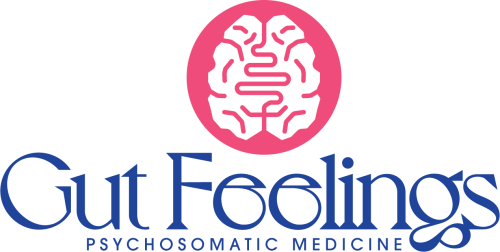Unlike some physicians, psychiatrists are not armed with an arsenal of medical devices that can provide objective information regarding symptoms and deliver unambiguous diagnoses with clear, trackable treatment paths. Without these tools, psychiatrists are left to rely solely on their experience and clinical judgment.
Though psychiatrists have extensive training, like all humans, they are subject to cognitive biases that may affect their therapeutic recommendations.1 Research has revealed that physician decision making is indeed influenced by several of these biases – as well as individual risk tolerance – and that these phenomena are sources of medical errors.2,3 Limiting cognitive bias in medical practice is thus essential for improving care, and it is particularly important in the field of psychiatry, where diagnostic ambiguity is quite common.4
Measurement-based care (MBC) is increasingly being used to get around these cognitive biases and ensure that psychiatrists and their patients make evidence-based decisions. Though there are several definitions for MBC (coined in 2006), each definition is consistent with the idea that MBC makes patient assessment and treatment more objective.5–9 With standard care, it can be difficult to determine when patients are not improving, but with MBC, algorithms are implemented to flag patients who are not showing anticipated improvements.10,11 Research has shown that when clinicians adjust their recommendations accordingly, outcomes are superior to when MBC is not used during care.12–14
MBC involves regular assessment to help drive higher quality clinical decision making
At the heart of MBC is the collection of assessment data at each session.7–9 Compared to the more common practice of usual standard care (USC), MBC enhances communication between psychiatrists and their patients through these check-ins that improve the monitoring of old and new symptoms and provide critical feedback to both the physician and the patient.7,9
This style of communication has been shown to improve patient engagement as well as the collaboration between patients and psychiatrists toward better outcomes for the patient.15–18 Likely for these reasons, research has also shown that with MBC, problems are identified faster, patients are more likely to follow treatment recommendations, and treatment is more efficient, achieving greater gains in a shorter amount of time.7,8,11,19
Data show that compared to USC, MBC leads to superior outcomes
Evidence is accumulating that demonstrates the superiority of MBC over USC in achieving positive patient outcomes.9,15,20 While much of the data on MBC shows how effective it is in adults, a well-designed study that investigated the impact of MBC in youths found that it was also beneficial in younger age groups.21,22
A recent randomized trial exploring the differential effects of MBC and USC corroborated previous findings that MBC is better at improving outcomes in psychiatric patients.15,23 Specifically, the study found that MBC is not only better than USC in achieving treatment response and symptom remission in those with moderate to severe depression, but that MBC also enabled those outcomes to be achieved faster.23 Compared to the USC group, the MBC group experienced more treatment adjustments, suggesting that those receiving MBC were more closely monitored than those receiving USC. Other studies have shown that clinicians who employ MBC are able to address patient concerns more rapidly than those who do not practice MBC and that MBC can improve clinicians’ ability to recognize when patients no longer need their treatment, enabling them to get patients off of medications faster.8,24
Because MBC relies on validated clinical instruments shared by all those who practice MBC, MBC facilitates collaboration among providers, which can improve both the clinical decision-making process as well as the accuracy of clinical judgments, all of which benefit the patient.7,9,20,25,26 In addition to better clinical outcomes, MBC improves patients’ satisfaction with their care, their ability to receive individualized treatment, and their overall quality of life compared to USC.7,9,25,27,28
MBC appears to be effective because of its monitoring power
MBC is used to monitor symptoms in real-time to help determine if a patient is improving or deteriorating and to rapidly adjust treatment plans accordingly.7,15,27,29–31 The monitoring involved in MBC can also help to identify and measure side effects of medications as well as non-symptom factors that could be indicative of treatment progress and inform any necessary changes to the treatment regimen.7
Importantly, MBC has also been developed to help clinicians identify why a patient may not be improving.7 If for instance, a treatment is not targeting the correct mechanisms, clinicians may need to change the treatment course, and MBC can help them determine how to do so.
Leaders in mental health recommend MBC
Research over the past two decades showing the clear advantages of MBC over USC has led leaders in the field to call for MBC integration into routine care.15 Nonetheless, USC remains the standard, meaning that most psychiatrists are not providing the superior practice of MBC to their patients despite the evidence suggesting that they should and the encouragement by experts to do so.7
Luckily, MBC is becoming more popular amongst both clinicians and patients, and patients are beginning to learn to ask for and seek out this more effective treatment.
References
1. Lambert MJ. Progress feedback and the OQ-system: The past and the future. Psychotherapy (Chic). 2015;52(4):381-390. doi:10.1037/PST0000027
2. O’sullivan ED, Schofield SJ. Cognitive bias in clinical medicine. J R Coll Physicians Edinb. 2018;48(3):225-232. doi:10.4997/JRCPE.2018.306
3. Saposnik G, Redelmeier D, Ruff CC, Tobler PN. Cognitive biases associated with medical decisions: a systematic review. BMC Med Inform Decis Mak. 2016;16(1):1-14. doi:10.1186/S12911-016-0377-1
4. Hunzeker A, Amin R. Teaching Cognitive Bias in a Hurry: Single-Session Workshop Approach for Psychiatry Residents and Students. MedEdPORTAL. Published online September 16, 2016. doi:10.15766/MEP_2374-8265.10451
5. Trivedi MH, Rush AJ, Wisniewski SR, et al. Evaluation of outcomes with citalopram for depression using measurement-based care in STAR*D: implications for clinical practice. Am J Psychiatry. 2006;163(1):28-40. doi:10.1176/APPI.AJP.163.1.28
6. Arbuckle MR, Weinberg M, Kistler SC, et al. A curriculum in measurement-based care: screening and monitoring of depression in a psychiatric resident clinic. Acad Psychiatry. 2013;37(5):317-320. doi:10.1176/APPI.AP.12080152
7. Aboraya A, Nasrallah HA, Elswick DE, et al. Measurement-based care in psychiatry—Past, present, and future. Innovations in Clinical Neuroscience. 2018;15(11-12):13. Accessed July 7, 2022. /pmc/articles/PMC6380611/
8. Jensen-Doss A, Douglas S, Phillips DA, Gencdur O, Zalman A, Gomez NE. Measurement-based care as a practice improvement tool: Clinical and organizational applications in youth mental health. Evid Based Pract Child Adolesc Ment Health. 2020;5(3):233-250. doi:10.1080/23794925.2020.1784062
9. Scott K, Lewis CC. Using measurement-based care to enhance any treatment. Cogn Behav Pract. 2015;22(1):49. doi:10.1016/J.CBPRA.2014.01.010
10. Cannon JAN, Warren JS, Nelson PL, Burlingame GM. Change trajectories for the Youth Outcome Questionnaire self-report: identifying youth at risk for treatment failure. J Clin Child Adolesc Psychol. 2010;39(3):289-301. doi:10.1080/15374411003691727
11. Delgadillo J, Overend K, Lucock M, et al. Improving the efficiency of psychological treatment using outcome feedback technology. Behaviour research and therapy. 2017;99:89-97. doi:10.1016/J.BRAT.2017.09.011
12. Claiborn CD, Goodyear RK. Feedback in psychotherapy. J Clin Psychol. 2005;61(2):209-217. doi:10.1002/JCLP.20112
13. Delgadillo J, de Jong K, Lucock M, et al. Feedback-informed treatment versus usual psychological treatment for depression and anxiety: a multisite, open-label, cluster randomised controlled trial. Lancet Psychiatry. 2018;5(7):564-572. doi:10.1016/S2215-0366(18)30162-7
14. Riemer M, Rosof-Williams J, Bickman L. Theories related to changing clinician practice. Child Adolesc Psychiatr Clin N Am. 2005;14(2):241-254. doi:10.1016/J.CHC.2004.05.002
15. Fortney JC, Unützer J, Wrenn G, et al. A tipping point for measurement-based care. Psychiatr Serv. 2017;68(2):179-188. doi:10.1176/APPI.PS.201500439
16. Moltu C, Veseth M, Stefansen J, et al. This is what I need a clinical feedback system to do for me: A qualitative inquiry into therapists’ and patients’ perspectives. Psychother Res. 2018;28(2):250-263. doi:10.1080/10503307.2016.1189619
17. Levinson W, Lesser CS, Epstein RM. Developing physician communication skills for patient-centered care. Health Aff (Millwood). 2010;29(7):1310-1318. doi:10.1377/HLTHAFF.2009.0450
18. Roter DL, Erby LH, Adams A, et al. Talking about depression: an analogue study of physician gender and communication style on patient disclosures. Patient Educ Couns. 2014;96(3):339-345. doi:10.1016/J.PEC.2014.05.006
19. Miller S, Duncan B, Brown J, Sorrell R, Chalk M. Using formal client feedback to improve retention and outcome: Making ongoing, real-time assessment feasible. Journal of Brief Therapy. 2006;5(1):5-22.
20. Hatfield DR, Ogles BM. Why some clinicians use outcome measures and others do not. Adm Policy Ment Health. 2007;34(3):283-291. doi:10.1007/S10488-006-0110-Y
21. Lewis CC, Boyd M, Puspitasari A, et al. Implementing measurement-based care in behavioral health: A review. JAMA Psychiatry. 2019;76(3):324-335. doi:10.1001/JAMAPSYCHIATRY.2018.3329
22. Bickman L, Kelley SD, Breda C, de Andrade AR, Riemer M. Effects of routine feedback to clinicians on mental health outcomes of youths: results of a randomized trial. Psychiatr Serv. 2011;62(12):1423-1429. doi:10.1176/APPI.PS.002052011
23. Guo T, Xiang YT, Xiao L, et al. Measurement-based care versus standard care for major depression: A randomized controlled trial with blind raters. Am J Psychiatry. 2015;172(10):1004-1013. doi:10.1176/APPI.AJP.2015.14050652
24. Douglas SR, Jonghyuk B, de Andrade ARV, Tomlinson MM, Hargraves RP, Bickman L. Feedback mechanisms of change: How problem alerts reported by youth clients and their caregivers impact clinician-reported session content. Psychother Res. 2015;25(6):678-693. doi:10.1080/10503307.2015.1059966
25. Katon WJ, Lin EHB, von Korff M, et al. Collaborative care for patients with depression and chronic illnesses. N Engl J Med. 2010;363(27):2611-2620. doi:10.1056/NEJMOA1003955
26. Sapyta J, Riemer M, Bickman L. Feedback to clinicians: theory, research, and practice. J Clin Psychol. 2005;61(2):145-153. doi:10.1002/JCLP.20107
27. Bauer MS, McBride L, Williford WO, et al. Collaborative care for bipolar disorder: Part II. Impact on clinical outcome, function, and costs. Psychiatr Serv. 2006;57(7):937-945. doi:10.1176/PS.2006.57.7.937
28. Bickman L, Lyon AR, Wolpert M. Achieving precision mental health through effective assessment, monitoring, and feedback processes : Introduction to the Special Issue. Adm Policy Ment Health. 2016;43(3):271-276. doi:10.1007/S10488-016-0718-5
29. Roy-Byrne P, Craske MG, Sullivan G, et al. Delivery of evidence-based treatment for multiple anxiety disorders in primary care: a randomized controlled trial. JAMA. 2010;303(19):1921-1928. doi:10.1001/JAMA.2010.608
30. Simon GE, Ludman EJ, Bauer MS, Unützer J, Operskalski B. Long-term effectiveness and cost of a systematic care program for bipolar disorder. Arch Gen Psychiatry. 2006;63(5):500-508. doi:10.1001/ARCHPSYC.63.5.50031. Hatfield D, McCullough L, Frantz SHB, Krieger K. Do we know when our clients get worse? an investigation of therapists’ ability to detect negative client change. Clin Psychol Psychother. 2010;17(1):25-32. doi:10.1002/CPP.656


